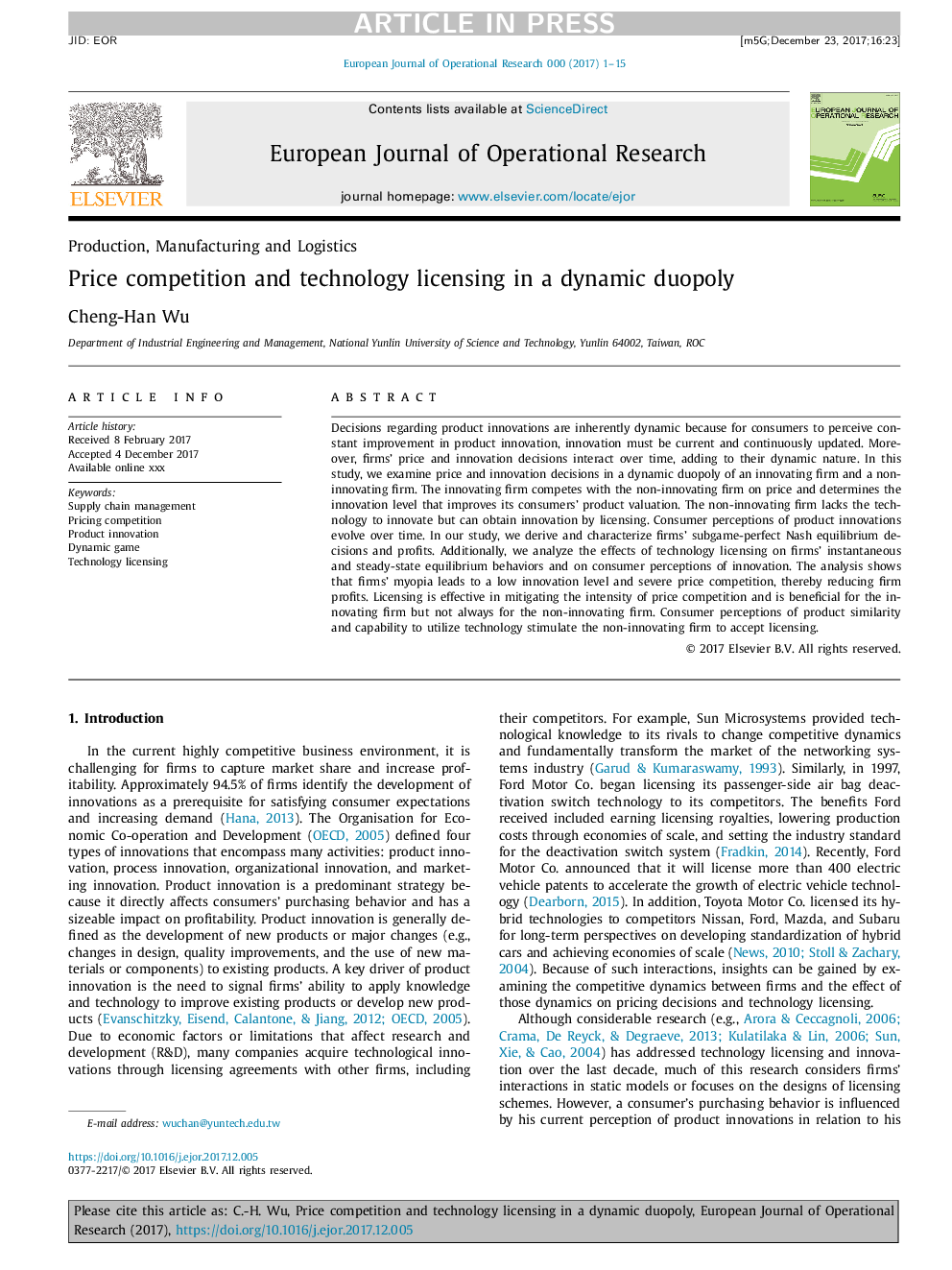| Article ID | Journal | Published Year | Pages | File Type |
|---|---|---|---|---|
| 6894998 | European Journal of Operational Research | 2018 | 15 Pages |
Abstract
Decisions regarding product innovations are inherently dynamic because for consumers to perceive constant improvement in product innovation, innovation must be current and continuously updated. Moreover, firms' price and innovation decisions interact over time, adding to their dynamic nature. In this study, we examine price and innovation decisions in a dynamic duopoly of an innovating firm and a non-innovating firm. The innovating firm competes with the non-innovating firm on price and determines the innovation level that improves its consumers' product valuation. The non-innovating firm lacks the technology to innovate but can obtain innovation by licensing. Consumer perceptions of product innovations evolve over time. In our study, we derive and characterize firms' subgame-perfect Nash equilibrium decisions and profits. Additionally, we analyze the effects of technology licensing on firms' instantaneous and steady-state equilibrium behaviors and on consumer perceptions of innovation. The analysis shows that firms' myopia leads to a low innovation level and severe price competition, thereby reducing firm profits. Licensing is effective in mitigating the intensity of price competition and is beneficial for the innovating firm but not always for the non-innovating firm. Consumer perceptions of product similarity and capability to utilize technology stimulate the non-innovating firm to accept licensing.
Related Topics
Physical Sciences and Engineering
Computer Science
Computer Science (General)
Authors
Cheng-Han Wu,
